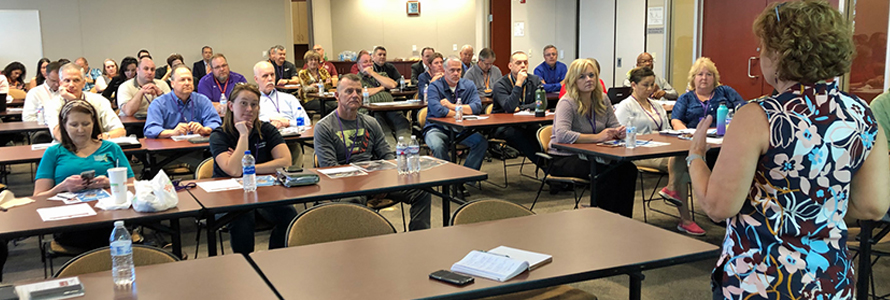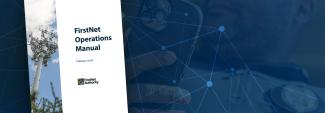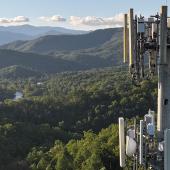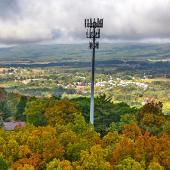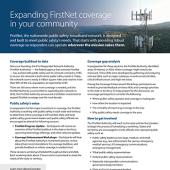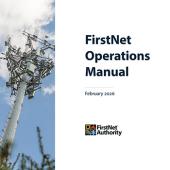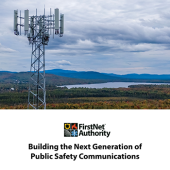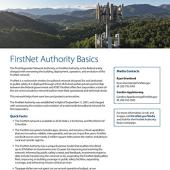The FirstNet Authority continues to engage public safety from every discipline to better understand what they need from the FirstNet network. The FirstNet Authority talked with professionals working in emergency communication centers (ECCs)—sometimes called 911 centers or public safety answering points (PSAPs)—at Arizona’s Public Safety Broadband Forum for PSAPs (“Forum”) in Phoenix, Arizona in late August.
The event, hosted by the Arizona Department of Administration, was geared towards understanding how emergency communications professionals in Arizona are using FirstNet today and helping them learn how to integrate FirstNet into their 911 operations. Though voice communications are traditionally constrained to landlines and land mobile radios, ECCs are expanding how they communicate. The FirstNet Authority talked with ECC professionals at the Forum to understand how they are using data to communicate with the public and with responders in the field.
Feedback on data-sharing with the public and responders in the field
The FirstNet Authority asked the more than 70 attendees a series of questions about how they communicate using data. Most of the attending agencies reported receiving text messages from the public. A few agencies also reported receiving videos, photos, emails, documents, and other data. Agencies have configured different ways of receiving data at their centers, including dedicated smart phones, email addresses, or 911 apps downloaded by the public. One attendee shared that his ECC gets about 400 texts every month, and half of those texts are reporting emergencies.
Attendees provided examples of how they share data with responders in the field. The most commonly reported method is sending computer-aided dispatch (CAD) data to mobile data terminals in emergency vehicles. ECCs are also sharing CAD data via apps on first responders’ smart phones, as well as sending photos, videos, and text messages directly to mobile devices of responders in the field.
Participants also discussed the tools their dispatchers use for situational awareness in the field. The most commonly reported tool is automatic vehicle location (AVL) software. Attendees also use CAD data, fixed video cameras, and body-worn devices such as video cameras and smart watches for situational awareness.
The FirstNet deployment and FirstNet Authority Roadmap
The FirstNet Authority’s Bill Schrier and Kristi Wilde talked with emergency communication professionals at the Forum about how FirstNet provides a dedicated public safety broadband network to power digital communications in the field. They discussed the FirstNet Authority Roadmap, which lays out future enhancements and priorities for FirstNet and is based on input from public safety engagements like the Forum.
Also at the Forum, AT&T, the FirstNet Authority’s contractor, shared plans for the current status and future buildout of FirstNet’s cell sites and use of Band 14 spectrum in Arizona, which will provide public safety users with quality of service, priority, and preemption on the network.
The future of data for ECCs
Today, data management technologies are part of public safety operations. ECCs have widely adopted CAD and Records Management Systems (RMS). Almost every first responder agency is using mobile computers and cellular data. Leading agencies have upgraded to smart phones, tablet computers, and FirstNet for situational awareness and data sharing.
Regardless of which data-sharing technologies they’ve adopted, every one of the over 5,000 ECCs in the nation are implementing Next Generation 9-1-1 (NG911). NG911 is upgrading 911 systems from analog to digital and promises to transform the quality and quantity of data that ECCs receive. At the same time, communities throughout the country are using more smart technologies such as sensors, controllers, and other Internet of Things devices to better manage infrastructure, transportation, and public safety. Both NG911 and smart communities will provide a flood of new data to ECCs.
As NG911 and smart communities evolve, ECCs will need improved data management and data sharing technologies to turn that flood of data into actionable information for first responders. ECC managers are already taking a close look at roles, responsibilities, and priorities within their centers as they prepare for new data capabilities. And while internal planning is important, it just as important to conduct joint operational planning with partnering public safety agencies. At the Phoenix Forum, the group discussed planning methods, including conducting tabletop exercises, developing hybrid incident radio communications plans (ICS 205), and holding user group meetings to share information on developments in communications for both ECCs and those in the field.
The Forum provided an important forum for emergency communications professionals to share ideas such as these. Thank you to the Arizona Department of Administration for hosting the Forum and providing the opportunity to discuss the benefits of FirstNet for ECCs in Arizona.


